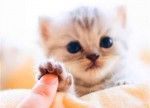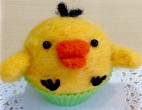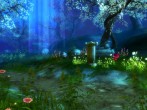
our life in the future英文作文【一】
The United States subprime mortgage crisis was a nationwide financial crisis , occurring between 20xx and 20xx, that contributed to the US recession of December 20xx – June 20xx . It was triggered by a large decline in home prices after the collapse of a housing bubble , leading to mortgage delinquencies, foreclosures, and the devaluation of housing-related securities . Declines in residential investment preceded the recession and were followed by reductions in household spending and then business investment. Spending reductions were more significant in areas with a combination of high household debt and larger housing price declines.
our life in the future英文作文【二】
Malaysia has been a hot tourist country in recent years, because people from all around the world were so attractive by its beautiful islands, which were green water and blue sky. But as more and more tourists come to visit its islands, problem comes. The media exposed the picture of full of trash in the island, which was so different from the tourist information. This is just one of the classic examples of tourist industry. People call for the clearness of environment. Both the tourists and government have the duty to do something to protect the environment. For tourists, they need to form the good habit of taking away the stuffs they bring and the government needs to take some action to deal with the trash. No one expects to see dirty scenery, so it needs us to do something.
马来西亚近年来成为了热门旅游国家,因为世界各地的人都被其美丽的岛屿吸引,那里有碧绿的水和蓝蓝的天空。但随着越来越多的游客来参观它的岛屿,问题也随之而来。媒体曝光的照片中,岛上到处是垃圾,这与旅游信息所展示的不一样。这仅仅是其中经典的旅游行业的`之一的例子,人们呼吁赶紧的环境。游客和政府都有义务做一些事情来保护环境。对游客来说,他们需要形成拿走他们带来的东西的好习惯,政府需要采取一些措施来处理垃圾。没有人想要看到脏乱的风景,因此需要我们做些事情。
our life in the future英文作文【三】
佛罗里达州一名9岁的小男孩,在湖中游泳时,遭到一条长9英尺(约2.7米长、重400磅(约180多公斤的短吻鳄袭击,赤手与其搏斗之后,小男孩身上多处受伤,目前正在医院治疗中。医生从他背部的伤口里取出一颗短吻鳄的牙齿,小男孩表示想把它做成项链。
James Barney Jr, spoke calmly and eloquently about his ordeal from hospital, where he was tucked up in bed with a teddy bear by his side. He was covered in some 30 teeth marks, doctors said.
小男孩名叫小詹姆斯·巴尼,他在医院里平静、生动地讲述了自己与短吻鳄搏斗的经历,在他床边还放有一只泰迪熊。医生说,小詹姆斯全身有30多处牙印。
The little boy described how it was a hot day so he had parked his bike and jumped into Lake Tohopekaliga - a lake that people are forbidden to swim in - when he felt something brush against his leg.
小詹姆斯说那天特别热,于是他就把自行车停在一旁自己跳进了托霍普卡莱加湖,这个湖是禁止人们在里面游泳的,刚一进去他就感觉有东西擦到他的腿了。
'It really amazed me what happened. At first, I thought someone was just playing with me, and I didn't know what happened,' he told ABC.
“后来发生的事情真的让我大吃一惊。但开始的`时候,我以为是有人在跟我闹着玩,我并不知道发生了什么事情。”他告诉广播公司(ABC的记者。
'I reached down to grab it, and I felt its jaw, I felt its teeth, and I didn't know what to do, so I immediately reacted and hit it a couple times. And I had enough strength to pry its jaw open.' The child pulled the powerful jaws open long enough to slide out and swim to shore.
“我潜入水中抓住了它,摸到了它的下巴,摸到了它的牙齿,可不知道该怎么做,不过我立刻就反应过来了赶紧猛打了它几下,并使劲撑开了它的嘴巴。”小詹姆斯把它的嘴巴撑得足够大后赶紧退后并向岸边游去。
Witnesses say the boy surfaced, screaming that he'd been bitten by an alligator. They immediately called 911.
目击者称小男孩浮出水面后尖叫着说自己被一只短吻鳄咬到了。于是他们立刻拨打911报警。
our life in the future英文作文【四】
There were three of them. There were four of us, and April lay on the campsite and on the river, a mixture of dawn at a damp extreme and the sun in the leaves at cajole. This was Deer Lodge1on the Pine River in Ossipee, New Hampshire, though the lodge was naught2 but a foundation remnant in the earth. Brother Bentley's father, Oren, had found this place sometime after the First World War, a foreign affair that had seriously done him no good but he found solitude3abounding4 here. Now we were here, post World War II, post Korean War, Vietnam War on thebrink5. So much learned, so much yet to learn.
Peace then was everywhere about us, in the riot of young leaves, in the spree of bird confusion and chatter6, in the struggle of pre-dawn animals for the start of a new day, a CooperHawk7 that had smashed down through trees for a squealing8 rabbit, yap of a fox at a youngster, a skunk9 at rooting.
We had pitched camp in the near darkness, Ed LeBlanc, Brother Bentley, Walter Ruszkowski, myself. A dozen or more years we had been here, and seen no one. Now, into our campsite deep in the forest, so deep that at times we had to rebuild sections of narrow road (more a logger's path flushed out by earlier rains, deep enough where we thought we'd again have no traffic, came a growling10 engine, an old solid body van, a Chevy, the kind I had driven for Frankie Pike and the Lobster11 Pound in Lynn delivering lobsters12 throughout the Merrimack Valley. It had pre-WW II high fenders, a faded black paint on a body you'd swear had been hammered out of corrugated13 steel, and an engine that made sounds too angry and too early for the start of day. Two elderly men, we supposed in their seventies, sat the front seat; felt hats at the slouch and decorated with an assortment14 of tied flies like a miniature bandoleer ofammunition15 on the band. They could have been conscripts for Emilano Zappata, so loaded their hats and their vests as they climbed out of the truck.
"Mornin', been yet?" one of them said as he pulled his boots up from the folds at his knees, the tops of them as wide as a big mouth bass16 coming up from the bottom for a frog sitting on a lily pad. His hands were large, the fingers long and I could picture them in a shop barn working aprimal17 plane across the face of a maple18 board. Custom-made, old elegance19, those hands said.
"Barely had coffee," Ed LeBlanc said, the most vocal1 of the four of us, quickest at friendship, at shaking hands. "We've got a whole pot almost. Have what you want." The pot was pointed2out sitting on a hunk of grill3 across the stones of our fire, flames licking lightly at its sides. The pot appeared as if it had been at war, a number of dents4 scarred it, the handle had evidently been replaced, and if not adjusted against a small rock it would have fallen over for sure. Once, a half-hour on the road heading north, noting it missing, we'd gone back to get it. When we fished the Pine River, coffee was the glue, the morning glue, the late evening glue, even though we'd often unearth5 our beer from a natural cooler in early evening. Coffee, camp coffee, has a ritual. It is thick, it is dark, it is potboiled over a squaw-pine fire, it is strong, it is enough to wake the demon6 in you, stoke last evening's cheese and pepperoni. First man up makes the fire, second man the coffee; but into that pot has to go fresh eggshells to hold the grounds down, give coffee a taste of history, a sense of place. That means at least one egg be cracked open for its shells, usually in the shadows and glimmers7 of false dawn. I suspect that's where "scrambled8 eggs" originated, from some camp like ours, settlers rushing west, lumberjacks hungry, hoboes lobbying for breakfast. So, camp coffee has made its way into poems, gatherings9, memories, a time and thing not letting go, not being manhandled, not being cast aside.
"You're early enough for eggs and bacon if you need a start." Eddie added, his invitation tossedkindly10 into the morning air, his smile a match for morning sun, a man of welcomes. "We have hot cakes, kulbassa, home fries, if you want." We have the food of kings if you really want to know. There were nights we sat at his kitchen table at 101 Main Street, Saugus, Massachusetts planning the trip, planning each meal, planning the campsite. Some menus were founded on a case of beer, a late night, a curse or two on the ride to work when day started.
"Been there a'ready," the other man said, his weaponry also noted11 by us, a little more orderly in its presentation, including an old Boy Scout12 sash across his chest, the galaxy13of flies in supreme14 positioning. They were old Yankees, in the face and frame the pair of them undoubtedly15 brothers, staunch, written into early routines, probably had been up at three o'clock to get here at this hour. They were taller than we were, no fat on their frames, wide-shouldered, big-handed, barely coming out of their reserve, but fishermen. That fact alone would win any of us over. Obviously, they'd been around, a heft of time already accrued16.
Then the pounding came, from inside the truck, as if a tire iron was beating at the sides of the vehicle. It was not a timid banging, not a minor1 signal. Bang! Bang! it came, and Bang! again. And the voice of authority from some place in space, some regal spot in the universe. "I'm not sitting here the livelong day whilst you boys gab2 away." A toothless meshing3 came in his words, like Walter Brennan at work in the jail in Rio Bravo or some such movie.
"Comin', pa," one of them said, the most orderly one, the one with the old scout4 sash riding him like a bandoleer.
They pulled open the back doors of the van, swung them wide, to show His Venerable Self, ageless, white-bearded, felt hat too loaded with an arsenal5 of flies, sitting on a white wicker rocker with a rope holding him to a piece of vertical6 angle iron, the crude kind that could have been on early subways or trolley7 cars. Across his lap he held three delicate fly rods, old as him, thin, bamboo in color, probably too slight for a lake's three-pounder. But on the Pine River, upstream or downstream, under alders8 choking some parts of the river's flow, at a significant pool where side streams merge9 and phantom10 trout11 hang out their eternal promise, most elegant, fingertip elegant.
"Oh, boy," Eddie said at an aside, "there's the boss man, and look at those tools."Admiration12 leaked from his voice.
Rods were taken from the caring hands, the rope untied13, and His Venerable Self, white wicker rocker and all, was lifted from the truck and set by our campfire. I was willing to bet that my sister Pat, the dealer14 in antiques, would scoop15 up that rocker if given the slightest chance. The old one looked about the campsite, noted17 clothes drying from a previous day's rain, order of equipment and supplies aligned18 the way we always kept them, the canvas of our tent taut19 and true in its expanse, our fishing rods off the ground and placed atop the flyleaf so as not to tempt20 raccoons with smelly cork21 handles, no garbage in sight. He nodded.
We had passed muster22.
"You the ones leave it cleaner than you find it ever' year. We knowed sunthin' 'bout16 you. Never disturbed you afore. But we share the good spots." He looked closely at Brother Bentley, nodded a kind of recognition. "Your daddy ever fish here, son?"
Brother must have passed through the years in a hurry, remembering his father bringing him here as a boy. "A ways back," Brother said in his clipped North Saugus fashion, outlander, specific, no waste in his words. Old Oren Bentley, it had been told us, had walked five miles through the unknown woods off Route 16 as a boy and had come across the campsite, the remnants of an old lodge1, and a great curve in the Pine River so that a mile's walk in either direction gave you three miles of stream to fish, upstream or downstream. Paradise up north.
His Venerable Self nodded again, a man of signals, then said, "Knowed him way back some. Met him at the Iron Bridge. We passed a few times." Instantly we could see the story. A whole history of encounter was in his words; it marched right through us the way knowledge does, as well as legend. He pointed2 at the coffeepot. "The boys'll be off, but my days down there get cut up some. I'll sit a while and take some of thet." He said thet too pronounced, too dramatic, and it was a short time before I knew why.
The white wicker rocker went into a slow and deliberate motion, his head nodded again. Hespoke3 to his sons. "You boys be back no more'n two-three hours so these fellers can do their things too, and keep the place tidied up."
The most orderly son said, "Sure, pa. Two-three hours." The two elderly sons left the campsite and walked down the path to the banks of the Pine River, their boots swishing at thigh4 line, the most elegant rods pointing the way through scattered5 limbs, experience on the move.Trout6 beware, we thought.
"We been carpenters f'ever," he said, the clip still in his words. "Those boys a mine been some good at it too." His head cocked, he seemed to listen for their departure, the leaves and branches quiet, the murmur7 of the stream a tinkling8 idyllic9 music rising up the banking10. Old Venerable Himself moved the wicker rocker forward and back, a small timing11 taking place. He was hearing things we had not heard yet, the whole symphony all around us. Eddie looked at me and nodded his own nod. It said, "I'm paying attention and I know you are. This is our one encounter with a man who has fished for years the river we love, that we come to twice a year, in May with the mayflies, in June with the black flies." The gift and the scourge12, we'd often remember, having been both scarred and sewn by it.
Brother was still at memory, we could tell. Silence we thought was heavy about us, but there was so much going on. A bird talked to us from a high limb1. A fox called to her young. We were on the Pine River once again, nearly a hundred miles from home, in Paradise2.
"Name's Roger Treadwell. Boys are Nathan and Truett." The introductions had been accounted for.
Old Venerable Roger Treadwell, carpenter, fly fisherman, rocker, leaned forward and said, "You boys wouldn't have a couple spare beers, would ya?"
Now that's the way to start the day on the Pine River.

















